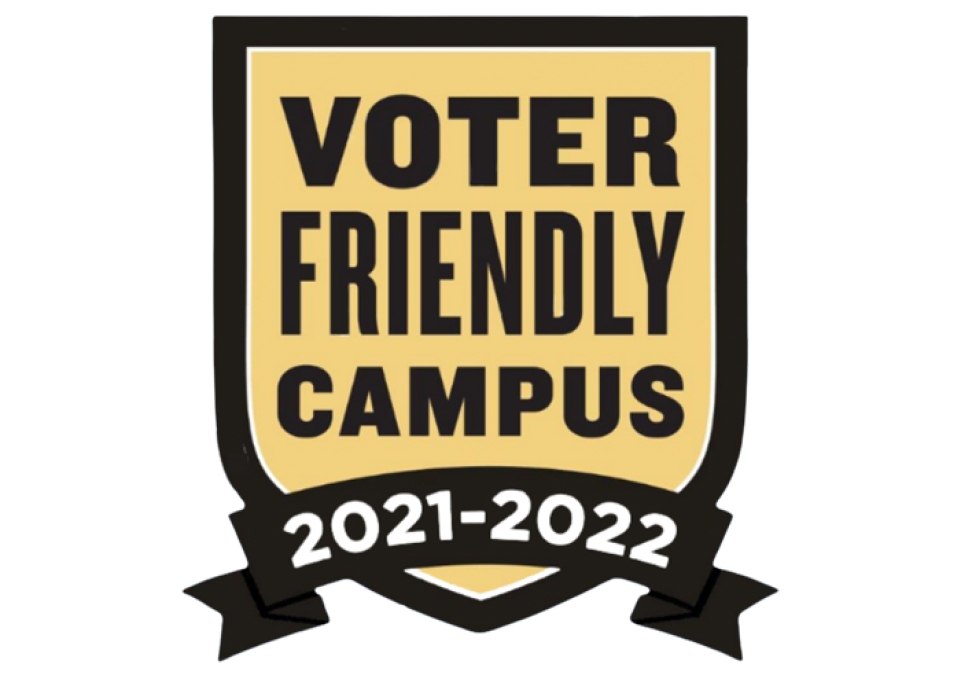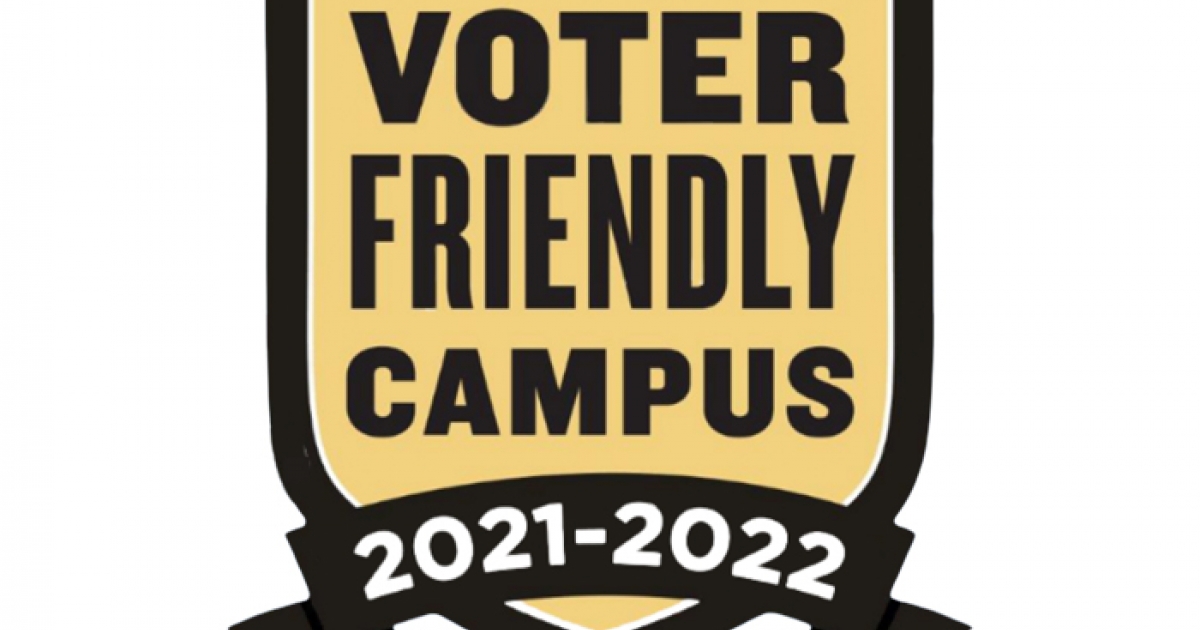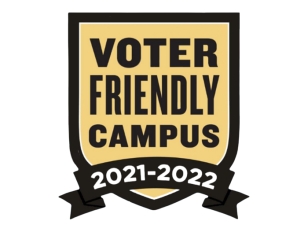
When Aurora Schunk, assistant director of Buffalo State College’s Civic and Community Engagement (CCE) Office, learned about the national “Voter Friendly Campus,” designation, she and her CCE colleagues aimed to earn it.
They created a Voter Friendly Action Plan and invited campus stakeholders to join them in a Voter Friendly Campus Work Group to tackle concrete goals—first and foremost urging students to register to vote and show up at the polls. Along the way, they offered a voter registration section on the CCE site, formed a partnership with the New York Public Interest Research Group (NYPIRG), assigned interns to gather data and assist with social media outreach, and hosted virtual programming for students over the spring and fall 2020 semesters.
Their work paid off. Buffalo State was named a “Voter Friendly Campus” last week as part of an initiative led by two national nonpartisan organizations: the Fair Elections Center’s Campus Vote Project (CVP) and the National Association of Student Personnel Administrators (NASPA). The designation is valid through December 2022.
“Students are interested in civics and care about voting outcomes. If you give them the necessary tools and information, they will get involved.”
Buffalo State joins more than 230 campuses—a mix of two-year, four-year, public, private, rural, and urban institutions located in 37 states and the District of Columbia—to receive the designation. To qualify, schools had to demonstrate planning and implement practices that encouraged their students to register and vote in the 2020 elections and in future elections.
“This designation underscores what we already knew about our community—that our students, faculty, and staff members are civic-minded and socially responsible,” said Buffalo State College President Katherine Conway-Turner. “It’s incredible to see the culture of voting that our campus has fostered, thanks to the proactive efforts of the CCE and the work group. This foundation of dedicated voting will serve our communities well here in Western New York and wherever our students inhabit in the future.”
Buffalo State is an urban-engaged campus, Schunk said, and she and Laura Hill Rao, the CCE director, knew their office has made great strides in recent years forming community partnerships and facilitating community engagement and service-learning opportunities for students, but they wanted to do more on the civic engagement side.
“One way to do this was to create an action plan for student voting, implement it, and document the work,” Schunk said, “as a way to think intentionally about civic engagement and get students involved in the voting process.”
Begun through a partnership between the CVP and NASPA in 2016, the Voter Friendly Campus designation aims to bolster efforts that help students overcome barriers to participating in the political process.
Achieving this designation required clear and consistent education.
“We realized there is a lot of confusion in the nitty-gritty of voting,” Schunk said. “Applying for absentee voting, for instance, is a four-step process. Students have anxiety about doing it wrong.
“We had to ask ourselves how we can best support first-time voters, especially at a time when everything is virtual, and then find a way to do it.”
One way in which the CCE reached students was through 20-minute virtual workshops covering everything from how to register to vote online to key issues influencing the 2020 elections. The workshops, offered eight times throughout the pandemic, were well attended, she said.
While the CCE doesn’t yet have the number of students who registered to vote in 2020, Schunk said they expect to have those figures soon.
“We’re hoping we really pushed the needle on both registration and voting,” she said.
Overall, she said, the 15-month process was educational and rewarding.
“We learned that students are interested in civics and care about voting outcomes,” Schunk said. “If you give them the necessary tools and information, they will get involved.”



